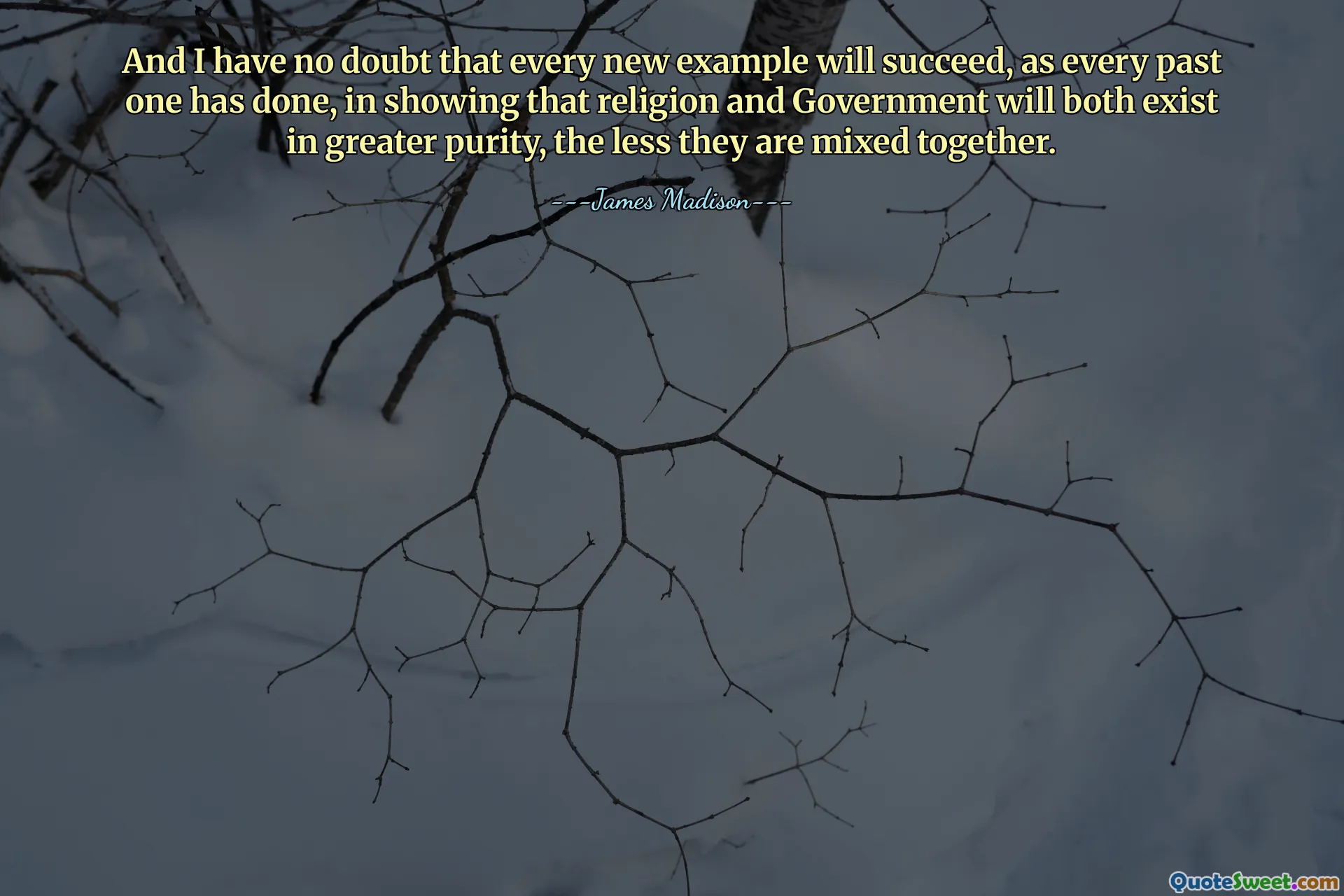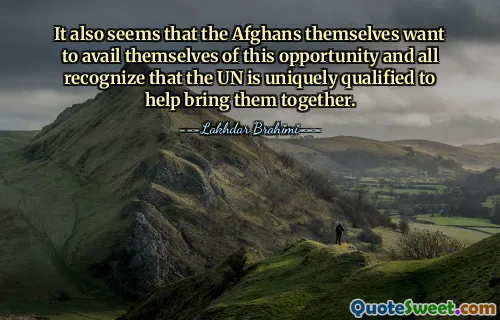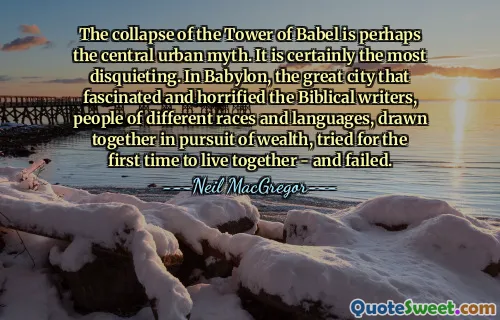
And I have no doubt that every new example will succeed, as every past one has done, in showing that religion and Government will both exist in greater purity, the less they are mixed together.
This quote encapsulates the enduring principle that the separation of church and state is vital for the health and integrity of both institutions. Historically, when religious influence infiltrates governmental affairs, it risks compromising fairness, suppressing diverse beliefs, and diminishing individual freedoms. Conversely, a government that remains neutral in religious matters creates a space where different faiths and philosophies can coexist harmoniously, fostering societal progress built on principles of rationality, civic rights, and mutual respect.
The quote suggests that attempts to intertwine religion with political authority often lead to complications, such as favoritism, the suppression of dissenting views, and conflicts that hinder societal unity. By allowing each domain to operate independently, they can reflect on their core values without overreach or interference. This division encourages spiritual freedom while maintaining a governance system that is rational and based on universal principles rather than sectarian interests.
Furthermore, the idea extended here points toward the possibility that the purest form of religion—its true message—remains uncorrupted when not entangled with political power. Similarly, governments are more effective, just, and representative when their actions are guided by secular principles rather than religious dogma.
In modern contexts, this separation is increasingly relevant as societies grow more diverse. Ensuring that religion does not dominate political decision-making helps to maintain peace and stability in pluralistic communities. It underscores the importance of safeguarding individual rights to worship—or not worship—and implementing policies based on reasoned debate and social equity rather than doctrinal influence.
Overall, the quote advocates for a delicate but essential balance—affirming that the pursuits of religious truth and political justice are best served when kept apart, allowing both to thrive independently and contribute positively to societal progression.









